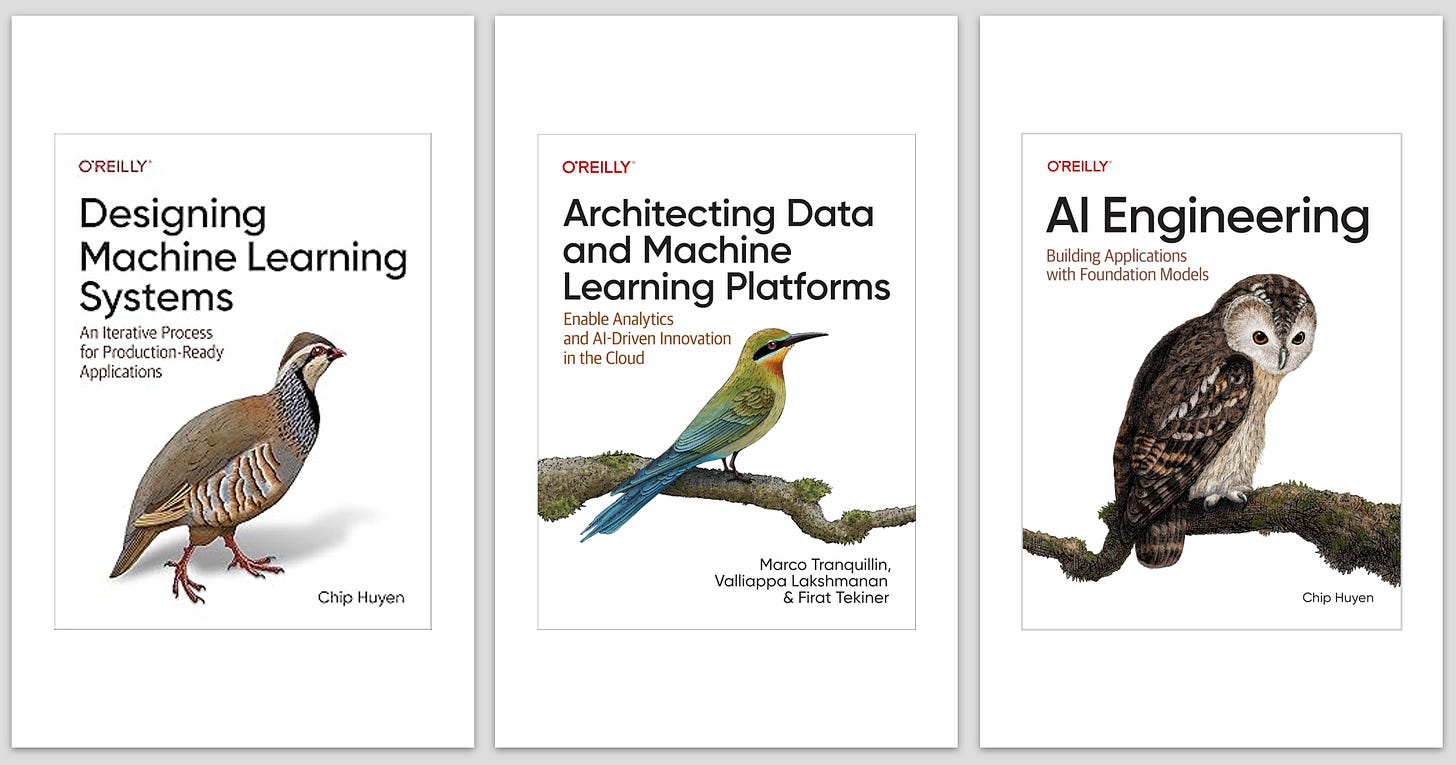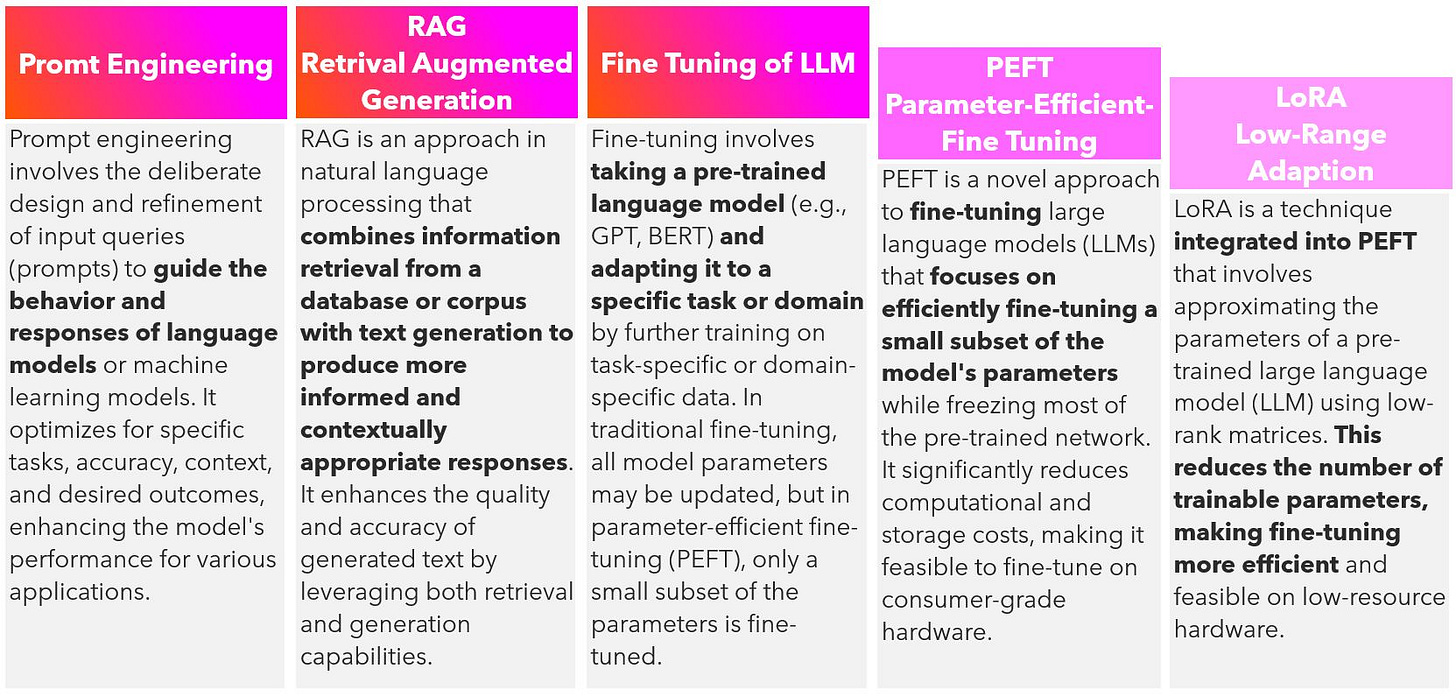AI Books - Review
Building a holistic picture on today's AI
Artificial Intelligence (AI) is one of the hottest topics in todays tech world! There is no need to explain that. Since ChatGPT was published AI got a totaly new meaning and awareness to many people.
As we can see from the timeline, AI is nothing new and finally includes a lot of topics and details. And I’m sure, even the Transformer Architecture, driving todays LLMs will be just one of the approaches for coining modern AI in a few years from now.
We have always seen an evolution here, but also disappointments leading to AI winters more than once in the last decades.
Coming now to the book review, I want to talk about even 3 books in the realm of AI. Non of the books is a hand-on let’s do it directly book. And this is good so. There are already many courses, mainly for free available, from universities, MOOCs like Coursera or DataCamp or from vendors like Microsoft or Google. Even OpenAI just just started there academy to cover programming. So choose your path for deep understanding and latest technologies and trends.
But be aware, it is not easy to try to keep up with the latest AI news. Nor is it necessary. To be good in something you have to master the basics and go down on essential topics. Than practice your art.
Source: Reddit /r/artificial
❌️ These books are not about algorithms for regression, classification, time series, deep learning, ...
❌️ These books are not about tools and technologies
❌️ These books are no text books with detailed programming examples
They are the 1.100 pages foundation to understand how AI really works today! For me, they are the perfect fit to complete a holistic picture about what is important today, how things work, what is needed for end-to-end solutions.
💡 I love reading books from the same context in parallel. I think no AI app will give you the same experience. I would recommend the order shown in the picture. But depending on your priority, read it as you want. I typically read criss-cross, driven by aspects interesting for me.
First, non of the books I would recommend for a complete beginner of the topics. You should have a basic understanding. You don't have to be a software developer or data scientist to read this books. But it is for sure good to be in Data & AI somehow to get a good understanding of the content.
Designing Machine Learning Systems
I'm not new to ML or AI but my history is rather Data Warehouse and BI. As a Data, Analytics & AI Strategy Consultant the way the book is written by Chip Huyen is tremendously valuable and a perfect fit for me. Diving deeper into specific topics, important but often not so visible in the current hype.
This book is about handling your data, engineering your features, Model Development and Deployment and what could happen when running Machine Learning applications.
At around 350 pages she explains how things work, visualizes them, refers to important papers and even use social media references news and articles to bring in current context and relevance.
She uses small code examples where necessary to explain things, but it is for sure no coding book.
She reference tools and ML algorithms for better understanding, but this is also not the focus of the book.
I like parts where she not just explain how things work but also reflect experiences e. g. for model selection you find the following tips:
Avoide the state-of-the-art trap
Start with the simplest model
Avoid human biases in selecting models
Evaluate good performance now versus good performance later
Evaluate trade-offs
Understand your model’ assumptions
Or the 4 myths of ML deployments:
You only deploy one or two ML models at a time
If we don’t do anything, model performance remains the sam
You won’t need to update your models as much
Most ML engineers don’t need to worry about scale
So sometimes I had the impression she tried to collect the current world wisdom for what could be important in designing ML systems, what is perfect for people who want and need a complete picture on how things work. If you just want to start, it is maybe the wrong book for you.
While there is a good overview in a 40 pages chapter about Data Engineering, the next book is basically about nothing else.
Architecting Data and Machine Learning Platforms
Marco Tranquillin, Valliappa Lakshmanan and Firat Tekiner did such a great job to bridge the gap between the typical data platform/data architecture book and modern ML/AI needs. It is a perfect complement.
From my experience, ML and AI starts often very easy. On your desktop. With a first model. Simple algorithms needing few ressources. Data comes from csv files or anything similar. That doesn’t work anymore if you are serious and want to scale the topic.
They start with the general idea, why you need a data platform, followed by a step-by-step overview about what is important to make it work. Many concepts are covered here you could dive deeper and read additional books and articles. But it helps for what comes next. Because you will learn, it is not just about technology, you need the right people, the right data team and the right organization to make everything work at scale.
They integrated a chapter “A Migration Framework” where we could argue about if you need a book about building something and than read about migration from legacy. But finaly this time will come and having in mind what happens than and how to handle that is for sure something helping you building a better platform.
This starting is something I totaly support, even if from chapter 5 the topics start, I would expect from such a book. And they deliver. Architecting Data Lake, Enterprise Data Warehouse, Data Lakehouse, Streaming platforms, hybrid and edge. Even if potentially getting old fast, they show on a high level architecture typical vendors and the components to build such a architecture. In a compact way they not just showing why these architecure pattern are important and what is important to know, they always embedd the ML/AI usage and why it is important here. This part is compact and fast, but giving a good idea.
I like that they work with a lot of context, bringing together current developments, value of the approach, organizational context and current technolgies you could use here. Sometimes the use code to explain. But you don’t have to be an expert. It is rather that you get a glimpse, how that looks like.
After the main part covering data architecture patterns, they added a chapter 10 about “AI Application Architecture” and chapter 11 about “Architecting an ML Platform. The book is from 2023, and we all know how fast this topic is evolving. But it is solid for understanding how data architecture and ML work together and what are approaches to bring these together.
They close the book with a model use case to bring you on the way with some practical advice.
I think they explain well, what is important to know as an architect. I would see the book very valuable for people coming from on-prem platforms or providing just reporting or BI cases before and now have to extend to ML/AI. It is also very helpful, if you know just one technology or vendor deeply but would like to broaden your understanding.
AI Engineering
So this nealy 500 page book by Chip Huyen is really popular from what I recognize, and this for a good reason. It is about building applications with foundation models (LLM), what is a totaly different thing than her other book about Designing Machine Learning Systems”.
She very carefully start to explain how things work to give a good understanding. Many references to scientific papers are referenced here. You don’t need to read that all, but you could. The book brings this in a practical context and understanding. Both helps especially more classical data science roles to dive in as needed.
In the beginning we have chapters about evaluation of foundation models and the evaluation of AI systems what shows us already, that we have here some fundamental different aspects than in classical ML systems.
And for sure, there are chapters about all the ways adapting them to your needs.
Not from the book but from an earlier blog I wrote is the following overview:
Prompt Engineering is still very popular and becoming rather a base skill today. But from the chapter you can for sure learn something and especially what is behind to get a better understanding how to make it usefull in an enterprise context.
RAG (Retrival Augemented Generation) is typically the next hot topic if you want to make use of your internal data together with LLMs. Together there is a short part about AI Agents. AI Agents became the very hot topic in the last months and the book don’t cover it in depth for what is currently happening here. But I’m sure we will see a wave of new books about in the next time. To get an impression you can also read the authors article on her website about.
The last three chapters of the book are rather for some extra topics:
Dataset Engineering
Inference Optimization
AI Engineering Architecture and User Feedback
These chapters round off the topic, depending on what you are looking for. The last chapter about AI Engineering Architecture is not redundant to the former book but discuss rather about the application architecture of AI and Agent in apps.
I think this book is not for nothing a reference for what is currently happening in the AI market and what most people currently discuss about AI. It helps to understand how things work but also shows that there is a lot of research and discussion about in this dynamic field. But if you want to add AI to your skillset, similar to the former books it will give you a great overview about what is currently important and makes you understand what is under the hood.
👉 If you want to understand, how modern ML/AI works under the hood, what is important to make things work, how everything works together, these books are really great. Especially these books together give you an end-to-end holistic understanding of what is really going on beyond buzz words and trends.
As I wrote in the beginning, it is not about algorithms, specific technologies, latest trends or doing hands-on. There are other opportunities and this is for sure equaliy important. Especially trying out hands-on is for sure a next step, depending on your role. You don’t have to read any of these books if you just want to make something happen and are rather a learning-by-doing guy. But if you want to understand how things work, want to look forward and adapt new trends fast, if you want to scale ML/AI for an enterprise or project, or if you as me needs an deeper understanding from a strategic-technological perspective, these books are write. And there is no repetition of content in them! No overlap. Read them all and add what is important for your field.
Have you already read the books? What is your impression about? Write it in the comments.





